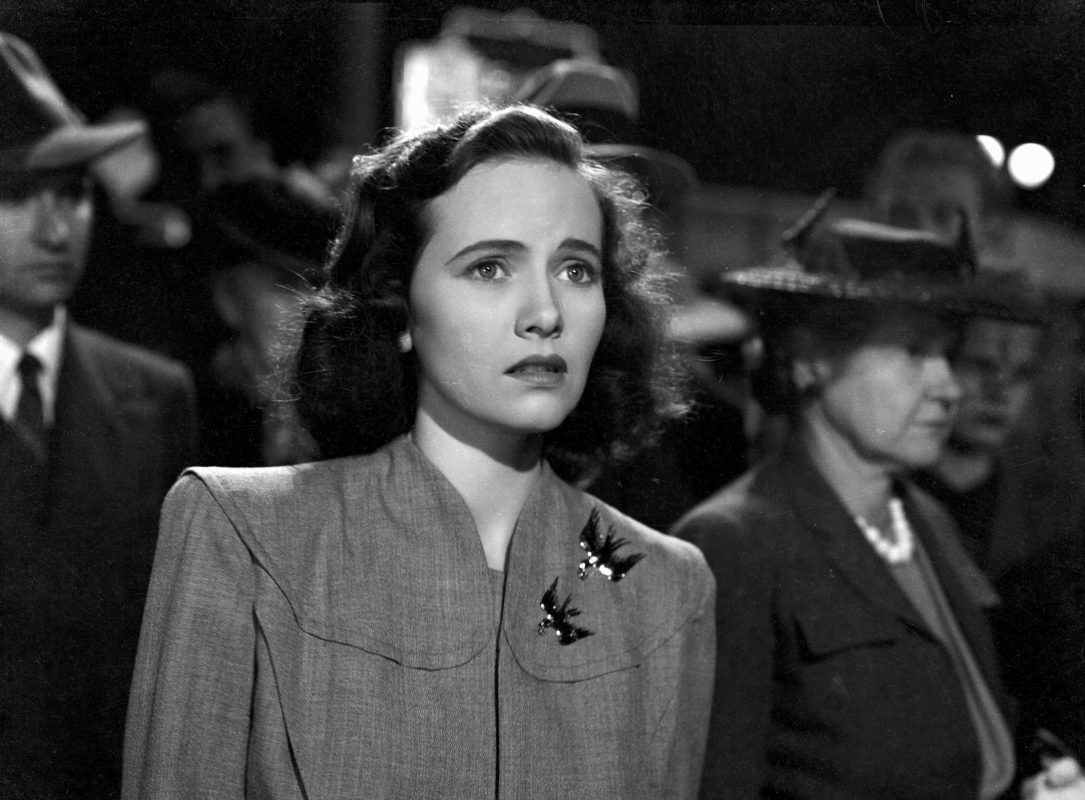
Their world represents Uncle Charlie’s own childhood, long lost from his days on 46 Burnham Street in Saint Paul, Minnesota. In Hitchcock’s hands, the city is a Rip Van Winkle community lost in time where every street corner has a friendly and alert cop commanding traffic and every neighbor is the other’s pal.

But for the man, there is nothing more appealing than the small, quiet life of Santa Rosa. A man who has been around the world for years and who has leads a great life back East (New York, Philadelphia or something like that), he represents the outside modern world to the sheltered and naive. Uncle Charlie descends upon Santa Rosa like a force of nature. Charlie the elder is already coming to see the family! Signed “with a kiss for Little Charlie from her Uncle Charlie,” it is a telegraph that confirms the very special relationship between the two. When she heads to the nearby telegraphist to plead for his rescuing hand, she is given a telegraph of her own. Thus, she comes upon the realization that the only thing that can save her from the tedium of a small town is her namesake, beloved Uncle Charlie (Joseph Cotten). To Charlie, the repetitive toils of family are a shroud hiding the banality of existence. Charlie’s younger sister, Ann (Edna May Wonacott), spends every waking moment buried in books and discovering the secret lives of Ivanhoe or Dracula. Her father Joseph (Henry Travers) absent-mindedly works the 9 to 5 at the local bank while fragile mother Emma (Patricia Collinge) plays happy homemaker to her family and fusses about the latest Women’s Club meeting. Growing up in the most idyllic of small American towns, the kind where the introverted neighbor comes over every evening after dinner, she’s bored with life.

Technically named Charlotte, Charlie is a precocious adolescent who is yearning for her life to start. The first is Charlie Newton of Santa Rosa, California. The movie is the deceptively simple story of two Charlies.

Shadow of a Doubt (1943), produced at the height of the Second World War, remains the Hitchcock’s most sincere and enduring love letter to all things Americana, including the sand upon which it is built. For whatever else Stoker is, it is a reimagining of one of the most fascinating and underappreciated works in the Master’s catalogue. Often described as a Korean Hitchcock, Chan-wook embraces these comparisons head on in a Hollywood production that looks for inspiration and guidance from the larger than life Englishman in a dark suit. Last week, Park Chan-wook’s first English language feature, Stoker, enjoyed its Blu-ray/DVD release. For every generation, there is almost something mythical and romantically innocent about times long gone by. Increasingly as a culture, Americans tend to look back on the past with the misty-eyed Instagram effect of nostalgia.


 0 kommentar(er)
0 kommentar(er)
